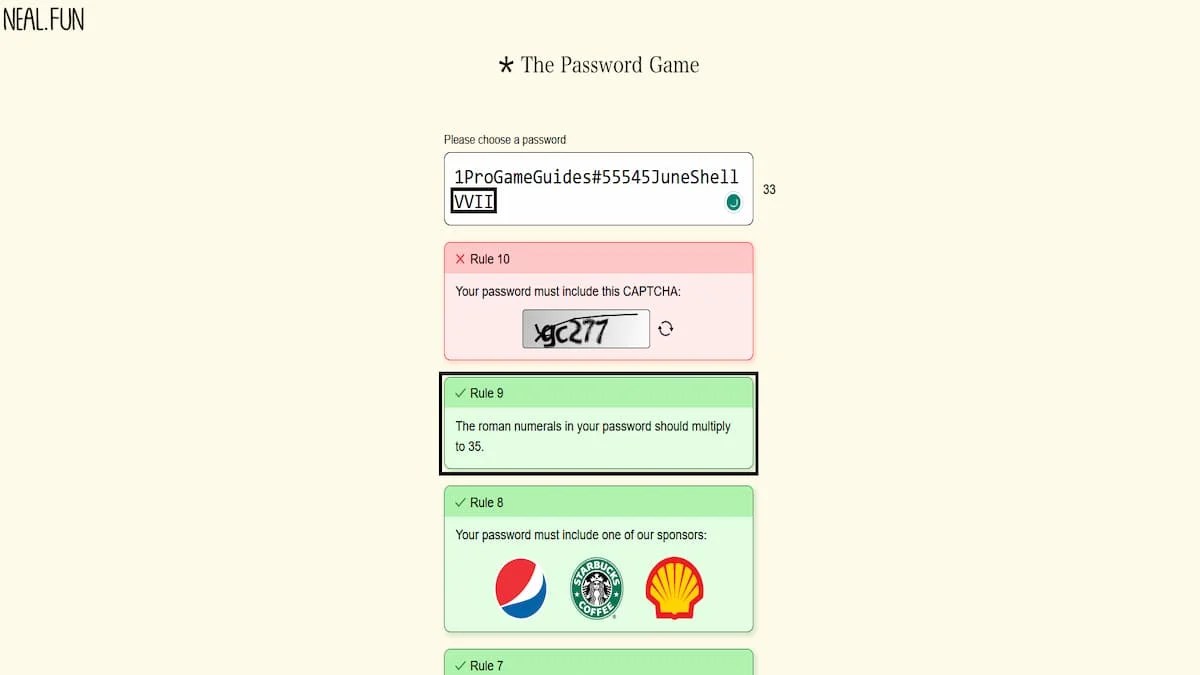In an increasingly digitized world, the quest for enhanced cognitive function often intersects with innovative digital experiences. The phrase "this roman numerals to 35 password game will make you smarter" emerges as a fascinating example, encapsulating a specific type of educational entertainmentor "edutainment"that promises mental agility through a structured challenge. This concept, seemingly simple on the surface, hints at a deeper engagement with numerical systems, pattern recognition, and memory retention, all wrapped within the contemporary paradigm of gamified learning.
Editor's Note: Published on 2024-07-30. This article explores the facts and social context surrounding "this roman numerals to 35 password game will make you smarter".
Conceptual Origins and Educational Principles
The notion of a "password game" designed around Roman numerals up to 35 directly taps into established educational methodologies that leverage play for learning. Historically, games have served as powerful tools for skill acquisition, from rudimentary counting games to complex strategy simulations. The integration of Roman numerals, an ancient number system, into a modern "password game" framework bridges a historical gap, presenting an intellectual challenge that demands both recall and conversion abilities. Such a game's educational bedrock lies in its ability to transform rote memorization into an interactive problem-solving exercise. Players are not merely asked to remember Roman numeral equivalents but to actively apply that knowledge, often under timed or sequential pressure, to construct or deduce a "password." This process inherently reinforces numerical literacy, particularly with systems beyond the standard decimal.
"Engaging with non-decimal number systems like Roman numerals offers unique cognitive benefits. It forces the brain to adapt, translate, and compute in unfamiliar ways, strengthening neural pathways associated with logical reasoning and mental flexibility," explains Dr. Evelyn Reed, a cognitive psychologist specializing in educational technologies. "When framed as a 'game' or 'password challenge,' the intrinsic motivation to succeed further amplifies these learning outcomes."
Designing for Cognitive Enhancement
At its core, a "Roman numerals to 35 password game" likely functions by presenting a Roman numeral (e.g., XXXV, XXIV, IX) and requiring its Arabic equivalent (35, 24, 9) as a password, or vice-versa. Alternatively, it could involve a series of Roman numerals that need to be arranged in a specific sequence, or perhaps performing simple arithmetic operations on them before deriving a password. The "to 35" specification is crucial, as it limits the scope of numerals, making the challenge accessible yet sufficiently complex to demand focused attention. Mastery of Roman numerals up to 35 (I, V, X, L) involves understanding additive and subtractive principles (e.g., IV for 4, VI for 6, IX for 9, XI for 11, XL for 40, though not relevant to 35). This specific range ensures players become adept at recognizing and manipulating these foundational symbols, a skill that requires active processing rather than passive recognition.

